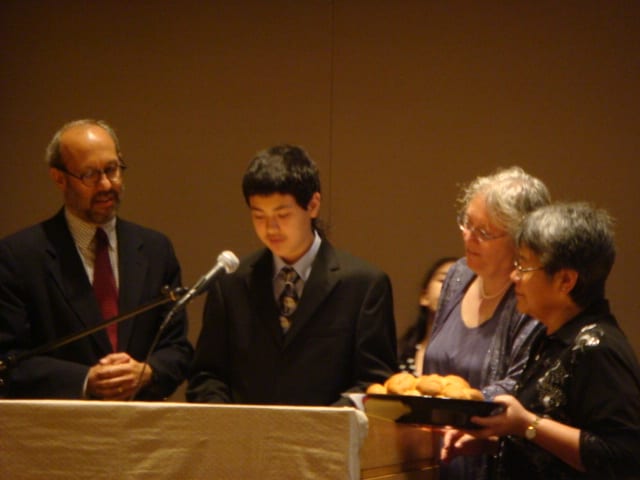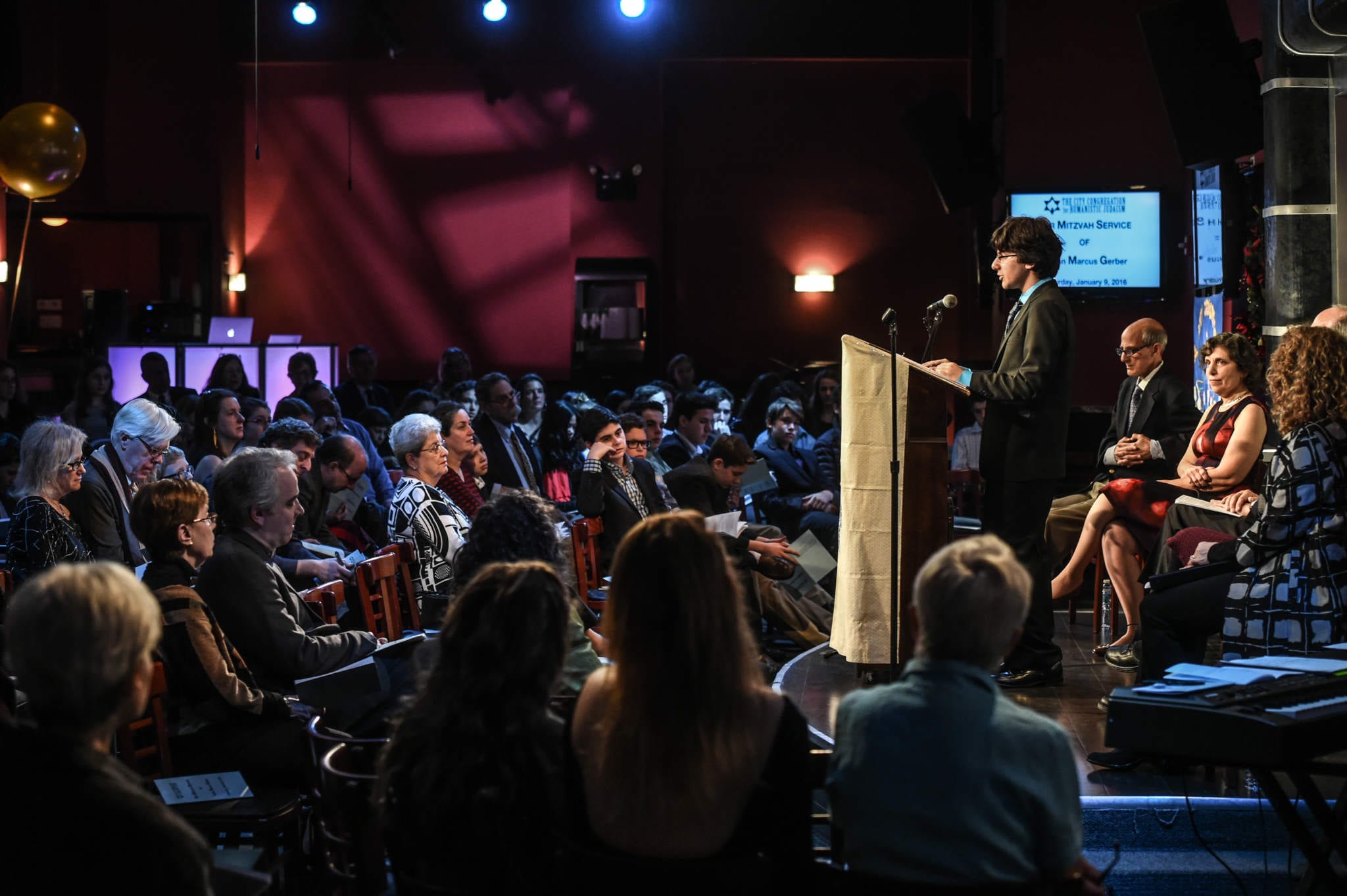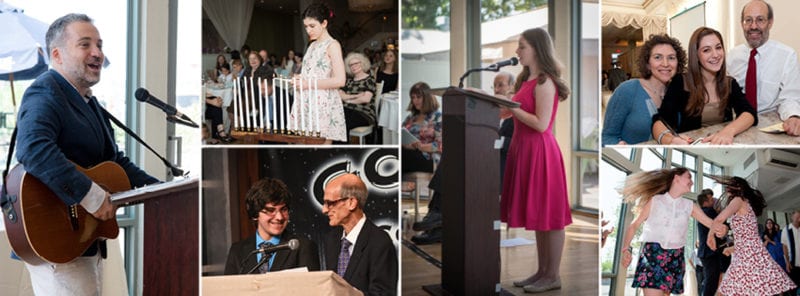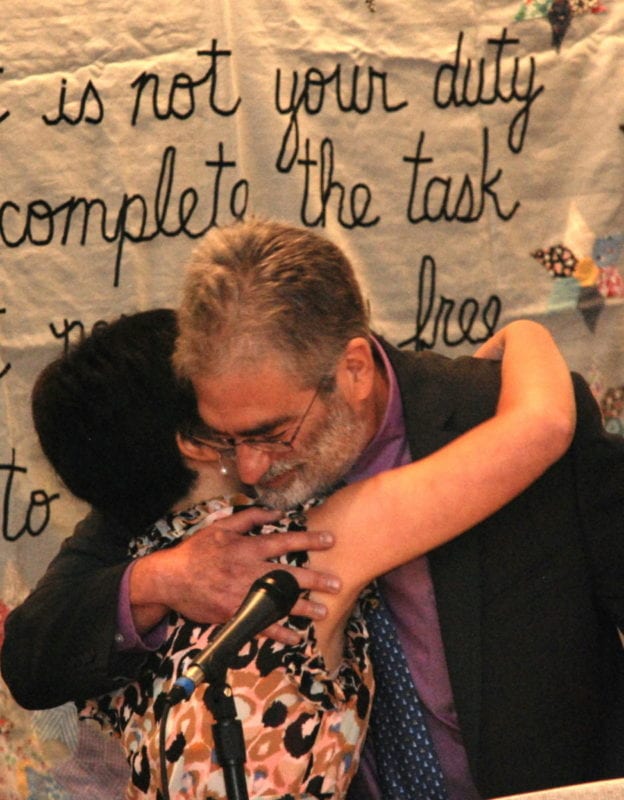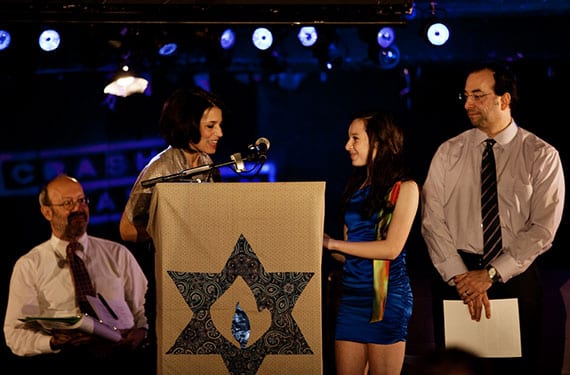What happens in a secular bar mitzvah or bat mitzvah?
Our bar and bat mitzvah students are required to do in-depth research and writing in four subject categories that prepare them to take on the responsibilities of adulthood in the Jewish community: family history and family values; personal beliefs; heroes and role models; and a Jewish topic of own their choosing that they will make the theme of a major presentation to the congregation and their guests.
Additionally, students learn-by-doing through community service and engagement in Jewish cultural activities.
Family history and values
Students discover their families’ values and the sources of their own values by interviewing relatives and collecting family stories.
We respect all the varying cultural backgrounds of our families and help each student come to terms with all aspects of their heritage. Children from interfaith, intermarried, or multiethnic families can have a bar mitzvah or bat mitzvah that honors their non-Jewish roots as well. Non-Jewish family members are encouraged to participate fully in the b’nai mitzvah process.
Examining personal beliefs
Students at this age are beginning to formulate their own ideas about a wide range of topics and our bar and bat mitzvah program encourages this process of discovery. We challenge young people to think about their beliefs, their values, and their place in the Jewish world. There are no right or wrong answers. We are interested in stirring their minds and engaging them in a profound activity that will make a lasting impact in their lives.
Heroes and role models
After deciding what matters most to them, students consider notable people from history or contemporary culture who exemplify these values. They also contemplate issues of perfection and imperfection and their own aspirations for the future. Our students have chosen heroes and role models ranging from prime ministers to revolutionaries and from scientists to comedians.
Major presentation on a Jewish topic
The centerpiece of The City Congregation’s humanistic bar mitzvah or bat mitzvah ceremony is the student’s in-depth presentation on a topic they have decided is important to them. We help students create a project that they will find engaging and that will strengthen their Jewish identity. Students have shared this project in any number of forms including oral presentations, self-produced videos, musical performance, and even a self-choreographed dance. We welcome creativity!
Some of the many topics explored by our students include the history of klezmer music, the shofar, and Masada; Jewish humor, Jews in the garment industry, and the development of modern Hebrew; the Holocaust and righteous gentiles; and the history of gefilte fish and iconic Jewish delicatessen food.
We are extremely proud of the outstanding work done by our bar and bat mitzvah students and invite you to read a selection of their essays:

